HOME | ABOUT US | MEDIA KIT | CONTACT US | INQUIRE
HOME | ABOUT US | MEDIA KIT | CONTACT US | INQUIRE
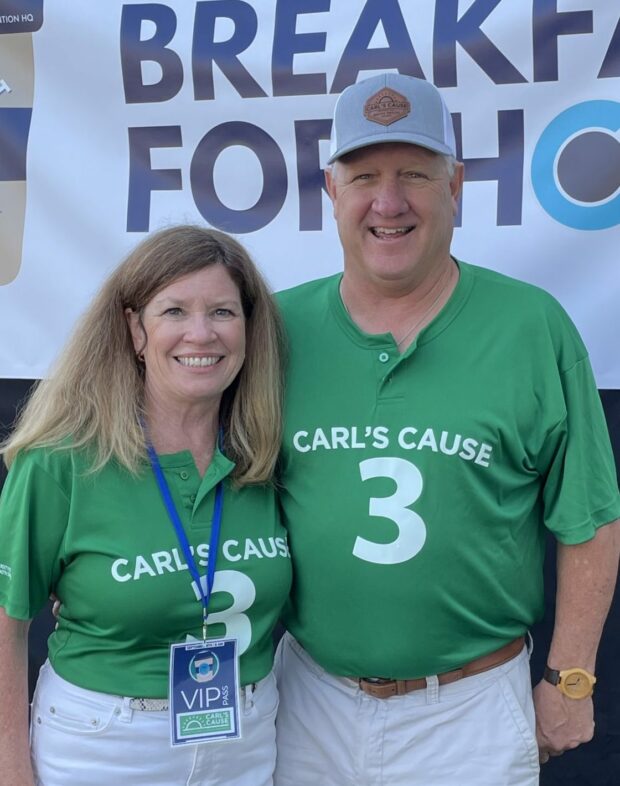
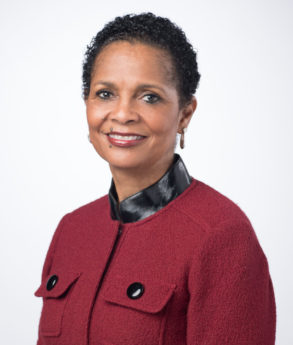 Debby Ballard
Debby Ballard
We all know the maxim about “to whom much is given,” but Debby Ballard knows that those implied gifts are not defined by the size of one’s investment portfolio. The daughter of a Baptist minister and a kindergarten teacher in Kansas City’s public schools, she was raised to see other treasure all around. “Even though we were not wealthy, I knew we were rich in all the things that really mattered—faith, family, friends, health—and that we had a responsibility to first give back to the church and then to those who needed help,” she says. “My parents put into action: ‘Service is the rent we pay for the privilege of living on this earth.’” Those lessons informed into her work during a 35-year career with Sprint, culminating as president and CEO of the former telecom’s foundation and director of community affairs. “I was fortunate to retire from my dream job,” she says, and now has her own non-profit consultancy that draws on her experiences. “I learned so much and connected with so many amazing individuals/organizations doing incredible work.” Corporate work also made clear that leadership roles were lacking minority faces. “So I decided to focus on connecting people of color with intentional leadership opportunities, including equipping them to navigate the unique and complex challenges they face as emerging leaders or executives of non-profits,” she says. “My experience also prepared me to help non-profits understand what corporations/foundations look for when making funding decisions. This is an area where a lot of organizations struggle.” She applies those skills on behalf of causes that support education, women and children, especially with various ties to UMKC, where she chairs the board of trustees. She’s also bolstering the missions of the Kansas City Girls Preparatory Academy, United WE, Turn the Page KC and Awesome Ambitions, among others, and serving on corporate boards as with First Business Bank. “One of the wonderful things about retirement is that I get to really focus on the causes that I am personally passionate about, and I can go deeper with my level of commitment,” she says. She encourages her cohort—10,000 Baby Boomers reaching retirement age every day—to hear their own call to serve. “When I think about those numbers and what is possible, I get really excited,” Ballard says. “The potential to make a huge impact on a specific problem or a community is a reality.”
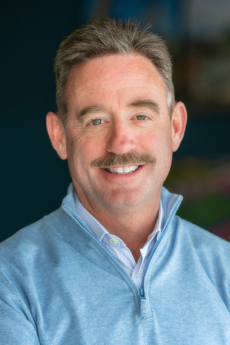 Peter Browne
Peter Browne
Rockhurst High School slapped a diploma in Peter Browne’s hand in 1985, then sent him off with a mission: Live the Jesuit commitment to being a Man for Others. “On top of the great education, I received a framework of service, justice, dialogue and advocacy that I’ve held close to in my professional career,” Browne says, extending from serving co-workers, clients, and developing leaders in others. The co-founder of Kissick Construction, which he launched with his late uncle, Jim Kissick, in 1994, has done just that, whether measured by his service to the Kansas City Public Library’s board or leadership roles with Notre Dame de Sion, the Folly Theater, the Nelson-Atkins Museum of Art, the Heavy Constructors Association or KCU’s Community Advisory Board. And before that, working on behalf of the Roanoke Park Conservancy, Kansas City Industrial Council, and Kansas City Area Development Council. The capstone might have been his selection early this year as the first new president of the library’s Board of Trustees in 17 years. “As a native of Midtown Kansas City, I’ve grown up finding inspiration in the Westport, Plaza and Central branches—and they continue to be important places I go on a regular basis,” he says. His wife, Julie Walker, teaches English and language arts, so they both hold the library in high regard. They served as event co-chairs for the Writers for Readers annual event to support the library and UMKC’s master’s program in creative writing, and Browne served on the campaign committee for the Vote For Your Library ballot initiative in 2018. No less a civic icon than Jonathan Kemper helped instill that commitment as long-timer board president, and “has been a wonderful mentor to me,” Browne says. “Mr. Kemper continues to serve as a trustee and valuable resource to the organization.” Browne’s interpretation of servant leadership includes “recognizing our obligation to walk with the excluded and work to improve the social and economic arrangements that can move us forward together,” he says, “and, finally, acknowledging our duty to civic institutions that are vital to an informed and engaged society.” The folks at Rockhurst, then, must have known what they were doing: 37 graduating classes after his, the school named Browne its 2022 Alumnus of the Year.
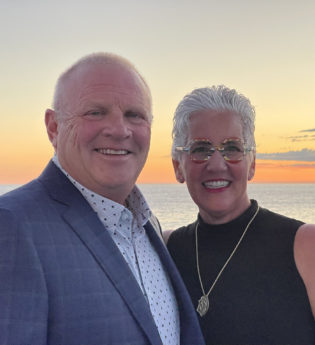 Peaches & David Cunningham
Peaches & David Cunningham
When it comes to volunteer support for non-profits, says Dave Cunningham, “you don’t know how important it is until something happens that touches you personally. That’s when you really find out what giving is, the giving of time and of your person.” He and his wife, Peaches, encountered just such a personal touch when their son was diagnosed with autism. The Cunninghams, who are senior-living executives, immediately threw themselves into the tasks of learning, then implementing strategies to help him find a secure place in the world. And that journey eventually led to The Farmer’s House, which they co-founded along with a couple in a similar situation to help people with developmental challenges acquire real-world skills. The Northland non-profit, operating on the site of an apple orchard they acquired a decade ago, exposes residents to every aspect of growing, harvesting, processing, and selling vegetables, fruit, honey, cheese, and related items. For Dave, philanthropy came as an awakening after college; Peaches says the roots of her service go back to her childhood. “My mom and my dad, and both grandparents, were all natural caregivers,” she says, whether through their church, assisting non-profits, or turning out spaghetti dinners for fund-raisers. “A lot of it always did revolve around food and the holidays and raising money,” she says. Their quest for information led them to the Children’s Spot when their son was diagnosed. “We just dove into anything with them that had to do with autism; that became our focus,” Peaches says, and that inspired work on behalf of similar organizations, such as the Foundation for Inclusive Religious Education. They settled on the concept of a small farm to create a self-sustaining mechanism for residents, and it helped that Dave had grown up on a farm. Residents learned to plant vegetables, pick weeds, water them, then harvest them, package and label the jars, run the cash registers, and greet customers. From there, it has blossomed into an operation that has served several hundred residents, with programs that continue to expand under the executive leadership of Amy Allison, drawing on collaborations with nearly a dozen school districts. It’s been an education for the Cunninghams, as well. “What’s interesting,” Dave says, “is that every time we’ve had a change, and that can be difficult, we’ve always come out better on the other side. Like any great business, it happens with the support of family, friends, and volunteers who believed in what we were doing. When you have that and can take it and build from it, it makes something very, very special.” For Peaches, the lesson here can apply to anyone: “Don’t be afraid to start something,” she says. “People want to put their arms around good things. Once people found out about The Farmer’s House, we have had so many volunteers since day one, of all ages. People want to be a part of something—it doesn’t just have to be financial.”
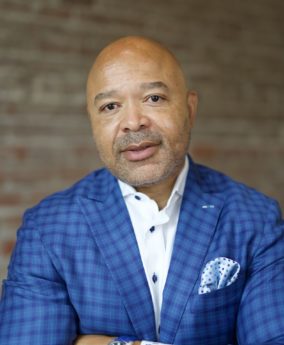 André Davis
André Davis
André Davis is a man on a mission—not just a mission to serve but to make a real difference. The day job entails business-development chores for Built Interior Construction, but when he’s off the clock, he’s deep into tasks for regional non-profits. Among those are board roles with Big Brothers Big Sisters of Kansas City, PrepKC, and the Kansas City Tomorrow Alumni Association. History of engagement covers nearly a dozen roles with various organizations. That service and what he learned in a 16-year stint in publications marketing, connecting with Kansas City’s executive community, has shown him that decades of talk about improving diversity haven’t come close to moving the needle. In pondering ways he could help change that, he drew on experiences attending corporate functions, including some where suburban youth, usually white, were recognized for community service. “And I thought, ‘Why would they be working like this when they could be playing?’” he says. “That sat on me.” It would inform his own goals with youth-oriented board service, promoting the need for similar engagement among minority youth. For Davis, it’s about action, not talk, but when he does talk with influential figures in KC, the message is direct. “When I show up, I show up as André,” he says. “I’ve learned that you can be authentic,” even if that means looking power brokers square in the eye and pointing out the lack of diversity in their organizations. When he does, he says, the result is usually positive. “I was often in rooms where no one looked like me,” he says. “People who look like me, black or brown, we get into the room, we often have to bring our own table and chair. But we have to operate as our authentic selves, not shrink away because of the environment, own whom you are, and say, ‘If that’s not enough, I don’t need to be in the room.’ I found that many of those executives leaned in and wanted to know more about my experience.” Until someone finds a way to pack more than 24 hours in a day, there are limits to his own service, so Davis serves an evangelical role promoting minority board membership and drawing on extensive contacts to help steer that talent into meaningful service roles. “I try to introduce people who can help solve problems to organizations that need the help,” he says. “It really is that simple. Just a simple email to some folks, then step out and let them take it from there. I’m wired to bring people together. I tell younger professionals to get involved and serve for the purpose of serving,” Davis says. “There are so many opportunities that open up when you serve as a servant-leader.”
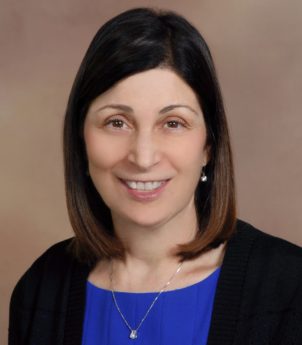 Lisa Gioia
Lisa Gioia
For Lisa Gioia, the time-talent-treasure formula that defines American philanthropy is a three-legged stool that can’t hold up on the strength of big donations alone. Throughout her career as a CPA, with a large national firm early, then with her own practice for most of her career, time and talent have defined much of her giving. She’s contributed both, in ample amounts, to nearly 90 non-profits, offering counsel to help them get their financial houses in order, training employees new to the field, mentoring and teaching, often with organizations focused on youth. “It’s not just about giving back; it’s about giving forwards,” Gioia says. “When you think about young people if they can’t go to college but want to, and you can help get them into school, that’s a huge positive for them, but the way I look at it, it’s a huge positive for all of us in the future. If they get knowledge and learn, who knows? Maybe someday they’ll be the ones to help cure cancer.” Her call to service started early, inspired by her parents. Each Sunday morning, she received her allowance before church, she recalls, “but they only let us keep it if we put part of it the envelope to put in the collection basket.” They would also volunteer frequently, through the church and with non-profit causes, “and that’s what motivated me to devote my time and talent,” she says. The passion for making a difference by teaching others also started at home—her father was a long-time teacher in the Park Hill district—and was enhanced during her college years at Avila University. “One of the math teachers asked if I would tutor other students who were adults, and I was 18,” Gioia says. “These ladies didn’t understand math very well, so that was another inspiration to give time and talent.” The fact that she was the beneficiary of a full scholarship to Avila was formative, as well. “That inspired me to give forward in the future for other schools,” she says. That service has included a seat on her alma mater’s board and working with its big annual Steer Dinner fundraiser to fund scholarships, and through UMKC and the Center for Non-Profit Leadership. Compared to the resources of a big company, it’s considerably harder to make an impact as a one-woman business entity. That challenge, though, can be as much about desire as it is about resources. “I think it’s both,” she says. “So you tie your business mission and values into philanthropy. If you do, you receive a lifetime of joy, whether working with not-for-profits like I do or with for-profits.” And that giving, she says, comes back to the business side. “In the long run, for me, working with not-for-profits, I would get so many referrals that I never really had to go out and get clients. It’s all about making a difference and networking, not just giving money.”
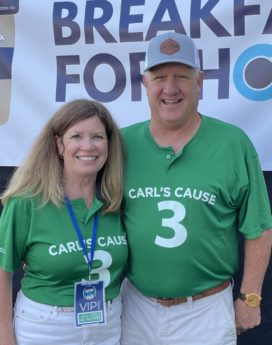 Kelly & Bob Specht
Kelly & Bob Specht
His name was Carl Specht, and he had the world at his fingertips as a young, well-educated professional in the prime of his life. But he harbored a darker side that his family struggled with for years before Carl took his own life in 2017. For many families, grief would take over at that point. His parents, Kelly and Bob Specht were having none of that, and today, Carl’s Cause is spreading a gospel of hope for those mired in hopelessness by promoting mental health awareness. “There was a defining moment shortly after losing Carl, our family wondered how we would survive this,” Kelly remembers. “Bob made the statement ‘We have to bring mental health awareness to the Stadium Level.’ That statement motivated us to do something in Carl’s memory. If this could happen to Carl, it could happen to anyone—we made a commitment to bring awareness out in the open.” Carl loved sports, so a natural opportunity seemed to be getting stadium scoreboards around the nation to proclaim the message: “It’s OK to not be OK—there is help!” One in five people will suffer a mental health crisis of some kind in their lifetime, she notes: “That is a lot of people in any given row at a stadium.” The Spechts agony didn’t begin with Carl’s death. “Access to care was a huge obstacle for Carl, especially after moving back to Kansas City from California,” Bob says. “Also, HIPPA laws prevented us from helping him get the help he needed, and his mind prevented him from understanding. There was not a safety net.” When The University of Kansas Health System asked them for a three-year commitment to fund the first Behavior Health Navigator, he says, “we knew this was something that would have helped Carl. We also learned, there are few ‘grateful patients’ who give back to Behavior Health” compared to other service lines such as cancer or heart cases. The hospital connected them with the Royals, and last year saw the first ‘Mental Wellness Day at the K,’ with Bob throwing out the first pitch, Kelly in the Buck O’Neil seat, and more than 500 Carl’s Cause supporters in the stands wearing ‘green t-shirts’ for mental health. The Spechts have also teamed with the KC Royals and Blue KC to promote the new 988 crisis hotline. The organization’s web site provides resources and compelling tales about the impact the Spects have already had. “It means everything to us to know we are saving lives,” Bob says. “Kelly and I have the ‘lived experience’ of trying to get help for our young-adult son who needed help and we couldn’t help him. We don’t want anyone to go through that same traumatic experience of losing a child or loved one.”
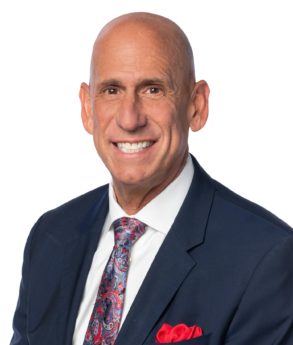 Gary Lezak
Gary Lezak
He brought you tomorrow’s weather most every night for 30 years, but that just scratches the surface of Gary Lezak’s impact on his adopted hometown. Most prominent among those efforts has been his passion for dogs—like the green screen, they were essential to his broadcast routine, but they weren’t props: Lezak is a long-time advocate for causes like Wayside Waifs and its annual Fur Ball, the Humane Society, Dog-n-Jog and more. In three decades of active support, his volunteer work with Wayside Waifs alone has helped that organization generate more than $25 million in donations. Not all of those are of the four-legged stripe. Following his own cancer diagnosis in 1999, Lezak became deeply engaged with the American Cancer Society as he worked through his own full recovery and beyond. “I am so happy to have been able to help out in these functions, providing a positive atmosphere and message to help fundraise. I never thought I would have been involved in this level of fundraising success. It feels really great to have helped in some way!” That help evolved over the years, he says, as he experienced the number of agencies in need of help. The demand was triggered after Windy the Weather Dog became part of the segment. “My love of dogs and pets became obvious to many of our viewers, and I started to get asked to be involved in any way I thought would work.” Things took off from there. Already on a rigorous schedule of school visits—perhaps 1,000 over the years—Lezak brought Windy to classrooms. As one might expect, cuteness ensued. There came a succession of sidekicks—Stormy, then Breezy, Sunny and Rainbow, all of whom had Lezak playing straight man on Take Your Human to School Day. “They all do quite a show and the kids love it,” Lezak says. “The inspiration to bring the dogs was easy, they were entertaining and I knew the kids would love it!” The running tally on his volunteer work: He has emceed at least 15 Dog-n-Jog events, 14 Fur Ball Galas, and 20 Cancer Action Volunteer Awards Banquets. His engagement became more personal after cancer paid its visit, and Lezak got behind Head for the Cure as well as the ACS. He’s also been there to back Shave to Save, a fundraiser for the Kansas City Hope Lodge, which houses cancer patients and their families while going through treatment. Lezak retired from KSHB at the start of this month, but still has his own company, Weather 20/20, which he intends to take global. “So I will likely be expanding my philanthropy going forward.”
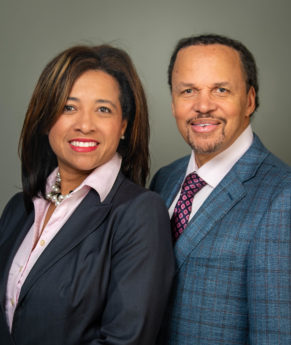 Jamila & Michael L. Weaver
Jamila & Michael L. Weaver
Long before the nation began its extended conversation about equity, Michael and Jamila Weaver were addressing the impacts of disparate health outcomes for minorities. He practiced medicine for more than 40 years, much of it as an emergency room physician and diversity executive with Saint Luke’s Hospital; she brought a nursing background and an advanced degree in health-care administration. Together, they are tackling a piece of the health-care ecosystem that contributed to those inequities: a fundamental lack of health-care students of color. They do that through the Mission Vision Project, where Michael serves as president and Jamila volunteers with administrative support, with a focus on bringing under-represented minorities into the field. Inequities in student diversity have been part of Michael’s journey since college—he was the first African-American to complete the six-year medical degree program at UMKC’s school of medicine, where he would become part of the faculty, and where he remains clinical professor emeritus. “I was very fortunate to have had parents who were both school teachers and taught me early about the value of a good education,” he says. “Along with my Catholic upbringing, I learned the need to donate/tithe, volunteer, and give back to the community. That has carried over into my medical career by going on medical missions around the globe and in New Orleans after Hurricane Katrina.” For the past 17 years, he has mentored under-represented minority students in each of the metro area’s three medical schools—his alma mater and the schools at the University of Kansas and Kansas City University. Now, he says, Jamila “has inspired me to broaden the pathway to include schools of nursing, dentistry, pharmacy, and other health-care fields that provide patient care. In addition, we are now looking upstream in health-care pathways to promote connection, communication, and coordination among the multiple resources that exist in the metro area that help students become highly qualified candidates for their chosen health-care career.” Their engagement doesn’t stop with MVP. Both have had board roles with the Kansas City Friends of Alvin Ailey, where Jamila is a current member, and she also volunteers with Children’s Mercy Hospital. Both organizations, she says, “embody the need to be unifiers and meet people where they are,” and that includes reaching diverse audiences. The hospital, in particular, she says, “is intentional about recognizing how inclusion and equity shape quality of care outcomes.” MVP, though, is just that—a mission. “One of the greatest challenges to student success is financial,” Michael says. “Tuition can be a limiting factor for students who are highly qualified academically but were not born into families that possess intergenerational economic wealth. As a community, we have an opportunity to raise funds to offset this challenge.”